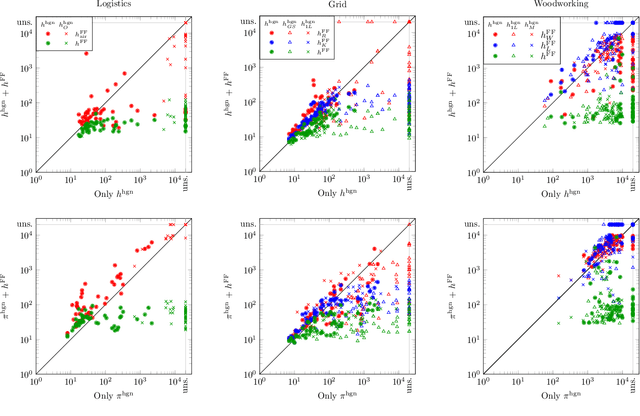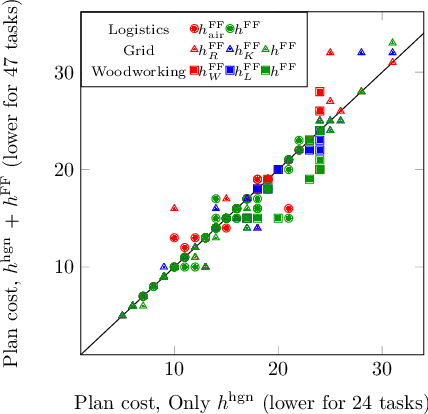Scaling up ML-based Black-box Planning with Partial STRIPS Models
Paper and Code
Jul 10, 2022



A popular approach for sequential decision-making is to perform simulator-based search guided with Machine Learning (ML) methods like policy learning. On the other hand, model-relaxation heuristics can guide the search effectively if a full declarative model is available. In this work, we consider how a practitioner can improve ML-based black-box planning on settings where a complete symbolic model is not available. We show that specifying an incomplete STRIPS model that describes only part of the problem enables the use of relaxation heuristics. Our findings on several planning domains suggest that this is an effective way to improve ML-based black-box planning beyond collecting more data or tuning ML architectures.
* 10 pages. Presented in workshops: RDDPS @ ICAPS 2022 and PRL @ IJCAI
2022
 Add to Chrome
Add to Chrome Add to Firefox
Add to Firefox Add to Edge
Add to Edge